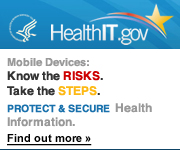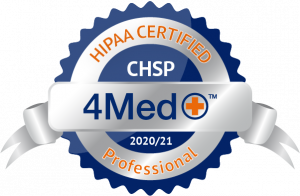WANTED:
3 2 1 New Clients
We are looking for a couple of new clients. The ideal candidates:
- have 10 or more PCs
- who want lightning fast response to their IT problems
- who want IT support with a “Today, Not Tomorrow” attitude
- are tired of 2nd rate IT support
- who don’t like IT surprises
- are willing to pay a set monthly fee for IT service
- who want honesty, reliability and predictability out of their IT Vendor
- who are most likely (but, not required) in the Professional Services industry such as Medical, Law, Engineering, or Accounting fields
If you are ready to talk about making a switch of IT vendors, give us a call.
Computer Networks of Roanoke, Inc.
Hank Wagner
hank.wagner@computernetworksinc.com
757-333-3299 x200

BUDR
Backup and Disaster Recovery
Hurricane Harvey has left a path of destruction in the Houston, TX area. As I write this, Hurricane Irma has a possibility of impacting the Hampton Roads, VA area.
What are YOU doing about protecting YOUR data in the event of a disaster? Bearing in mind that a ‘disaster” could be natural or man-made such as a hurricane, could be a Vendor or staff intentionally or accidentally deleting files, a hard drive crash or any number of other things that prevent you from accessing your data.
The basics of a BUDR plan:
- All data of any importance and worth saving must be placed on a server by the end user. Data kept on local PC hard drives is not backed up.
- All of the data placed on the server must be backed up by the BUDR solution.
- The BUDR solution must keep several days of backups on site.
- The BUDR solution must send the most recent data to an offsite location.
Call us if you want to learn more about our BUDR solutions and how they can protect any business regardless of the size of the business.
Network Security Is An Ongoing Job
Generally, Network Security is protection against hacking, misuse and unauthorized changes and from unauthorized access to files, directories and information on a computer network.
Protecting your network is not a “one and done” type of job. It requires a continuous combination of automated tools and human review to insure that your computer network remains as safe as possible. Using technical tools, such as firewall Intrusion Prevention, antivirus programs running on the firewall, Servers and PCs and spam filtering along with ongoing staff training will greatly reduce the threat to your network.
If you can keep the hackers out using the automated tools and then keep your staff from clicking on a phishing email or compromised website, you can keep the bad people off your network.
Today’s biggest threat comes from the uneducated employee whose curiosity causes them to click on a link in an email from someone they do not know.
Ongoing staff training is a critical part of keeping your network safe.
Ransomware Is a HIPAA Data Breach
In June, ransomware was installed on servers and workstations at Salina Family Healthcare in Kansas resulting in the encryption and potential disclosure of patients’ protected health information.
The attack occurred on June 18, 2017. Salina Family Healthcare was able to limit the extent of the attack by taking swift action to secure its systems. It was also possible to restore the encrypted data from recent backups so no ransom needed to be paid.
A third-party computer forensics firm was contracted to analyze its systems to determine how the ransomware was installed and whether the attackers succeeded in gaining access to or stealing patient data. While evidence of data theft was not uncovered, the firm was unable to rule out the possibility that the actors behind the attack viewed or copied patient data.
The protected health information potentially accessed includes names, addresses, dates of birth, Social Security numbers, medical treatment information, and health insurance details.
While data access was possible, no reports have been received to suggest any information has been stolen and misused, although patients should be alert to the possibility of data theft and should monitor their accounts and Explanation of Benefits statements closely for any sign of fraudulent activity.
Patients potentially impacted by the attack have now been notified of the security breach and have been offered credit monitoring and identity theft restoration services for 12 months without charge out of an abundance of caution.
Salina Family Healthcare has already taken a number of steps to improve security following the ransomware attack. Those measures include upgrading network servers, regularly scanning the network for viruses, providing the workforce with additional security training on malware threats, and limiting Internet access for staff to reduce exposure.
The breach report submitted to the Department of Health and Human Services’ Office for Civil Rights indicates 77,337 patients and payment guarantors have potentially been impacted by the security incident.
So, WHY was this a breach? Because the Office for Civil Rights has determined that:
- If the Patient data is accessed by unauthorized persons, that is a data breach
- The ransomware had to access the data in order to encrypt it
Therefore, the access of the records by the ransomware becomes a breach.
Managed Services
Who, What, When, Where, How, Why?
So, you have 50 Information Technology sales reps banging on your door and spamming your inbox every day wanting to sell you Managed Services. Here is short guide that may help:
Who - Every computer person out there used to be a “break/fix” guy. You would only call them when something was broken and your hair was on fire. It was broken, they came to fix it.
What – Managed Services are provided by Managed Service Providers (MSP’s) which are IT firms that specialize in being proactive instead of reactive. They manage the services that they provide in return for a set monthly fixed fee.
When – This transition has gradually occurred over the past few years although when I started this company 14 years ago, it was a pure-play Managed Services Provider. We have never done break/fix work.
Where – Any business can benefit from using an MSP to monitor and maintain their network. We do a lot of healthcare IT work, but, that does not mean that Attorneys or Accountants cannot use an MSP.
How – A Managed Service Provider takes over the monitoring, maintenance and management of your computer network. We install monitoring software that scans and looks for abnormalities and automatically creates trouble tickets for our staff. We provide high-end Unifies Threat Management (UTM) firewalls and monitor them for unusual activity. We respond to trouble tickets logged by your users. We provide hardware maintenance on your PCs, monitors, printers, etc. so that if one of those devices fail, it is our problem not yours. In short, we become your IT Department.
Why – Because all of this computer stuff has gotten way too complicated and takes too much time out of your day. You need to be running your business and not messing around for hours on end fixing computers.
Secure Device Destruction
Whenever the time comes to upgrade your PC to a new one, what do you do with the old hard disk drive inside the PC? When you trade in your copier, what do you do with the old hard drive in the copier machine?
In both of these scenarios, you are probably allowing the IT person/copier company person walk out the door with your company’s data.
The hard drive in a PC still contains any data that was placed on it by all of the people who have ever used it. If you are a medical office, this hard drive may contain ePHI. That is a data breach reportable to the Office for Civil Rights.
Most large copiers these days have a computer hard drive inside which retains an image of every copy or scan made on the machine. Allowing that hard drive to leave the building means that you are allowing a copy of everything that went through the copier into someone else’s hands. Again, if you are a medical office, this is a reportable breach.
It is imperative that you do not allow a technician to take these hard drives with them, unless you have some sort of written agreement about how these disk drives are to be destroyed with the technicians employer.
The last thing you need is for this data to start showing up on the Internet someplace because someone put one of these used hard drives in their home PC and started reading all of YOUR confidential information.
MSSP
OK, so you now know a little bit about MSP’s from the previous article. So, let’s talk for a minute about MSSP’s. Managed Services Security Provider.
Cybersecurity is a booming business.
The average person has neither the time, not the inclination, to keep up with the speed of light changes that keep occurring in Information Technology. It has been said by some, that IT is the fastest changing industry on the planet today.
The next step for MSP’s is to transform themselves in to MSSP’s.
The typical MSP does not have a focus on security. They are generalists that can handle the myriad of issues that come up in the day to day operation of your business, but, they do not stay up with the Security aspects as well as an MSSP.
If your MSP is providing some amount of network security management, which may include virus blocking, spam blocking, intrusion detection, firewalls, and virtual private network (VPN) management, then they can be classified as an MSSP.
Some MSSP’s provide a 24/7 Network Operations Center (NOC), but, this is generally overkill for the typical small and medium sized business.
Look at Security the same way as you look at your car at the Mall. You lock the doors and take the keys. If you have an alarm asystem, you turn it on.
You do not leave the windows, down, the keys in the ignition with the motor running, the alarm off and put a sign on top that says “STEAL ME!”.
You need to treat your computer network the same way. Lock it down, turn on the alarms, use good network hygiene and keep a low profile. That way the crooks will move on to an easier target.





